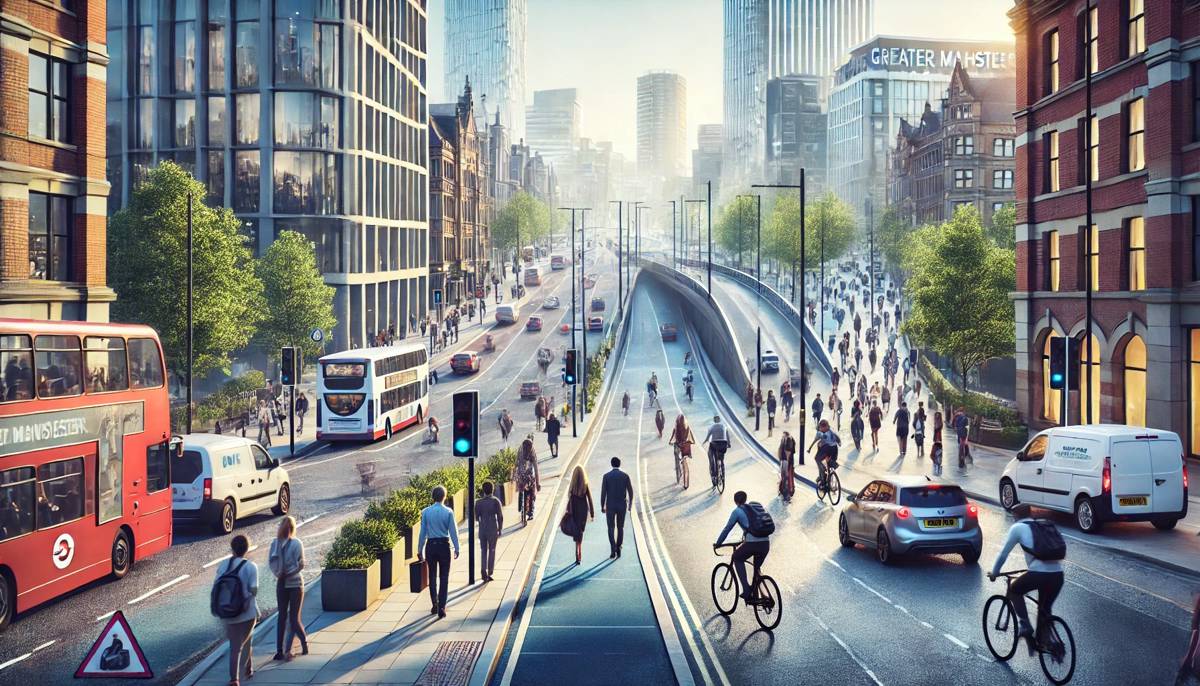Greater Manchester’s Vision Zero Action Plan for a Safer Tomorrow
Greater Manchester has taken a decisive step toward transforming road safety with its newly approved Vision Zero Strategy and Action Plan. Leaders across the region’s ten local authorities have come together to support this ambitious mission: eliminating all road deaths and life-changing injuries by 2040. This initiative is set to save thousands of lives while fostering safer, more connected communities.
This isn’t just a lofty goal. It’s a necessary response to a stark reality. Over the past decade, nearly 10,000 people have been killed or seriously injured on Greater Manchester’s roads. Last year alone, 64 lives were lost, with another 787 people enduring life-altering injuries. Behind these numbers lie untold stories of heartbreak, grief, and shattered futures—something the Vision Zero initiative is determined to change.
Understanding Vision Zero
First conceived in Sweden during the 1990s, Vision Zero has grown into a worldwide movement, guiding cities and countries in their efforts to tackle traffic fatalities. At its core is a simple but powerful belief: no loss of life on the road is acceptable.
Greater Manchester’s adoption of this strategy reflects a shared commitment to prioritising human safety over speed and convenience. By addressing the root causes of collisions and implementing evidence-based interventions, Vision Zero shifts the focus from accepting traffic deaths as inevitable to preventing them entirely.
Halving the Tragedy by 2030
The Vision Zero plan is not just about long-term goals; it includes an interim target to halve road traffic deaths and life-changing injuries by the end of this decade. This focused approach involves identifying high-risk areas, implementing targeted enforcement, and redesigning roads to minimise collision risks.
“Deaths and serious injuries on our roads aren’t just statistics; they’re personal tragedies,” said Kate Green, Deputy Mayor for Stronger and Safer Communities. “This plan is about putting safety at the heart of our transport system and ensuring everyone can travel without fear.”
Tackling the Fatal Four
The Vision Zero Action Plan includes several measures to address the primary causes of severe road traffic injuries—often referred to as the Fatal Four:
- Speeding: A new speed management policy will allow local authorities to adjust speed limits to better reflect the needs and risks of specific areas.
- Drink and Drug Driving: Enhanced enforcement will focus on deterring impaired driving.
- Seat Belt Usage: Campaigns will remind drivers and passengers of the life-saving importance of seat belts.
- Mobile Phone Use: Stricter penalties and public awareness efforts will aim to reduce distractions behind the wheel.
Safer Streets, Smarter Solutions
One of the plan’s standout features is the upgrade of safety cameras across the region, including both spot speed and average speed systems. This technology will work hand-in-hand with increased road policing to tackle unsafe driving behaviours. Additionally, lobbying for greater powers to combat illegal parking—especially outside schools—will ensure children can travel safely.
Furthermore, targeted campaigns will address antisocial road user behaviour, while ongoing education initiatives will empower drivers to make safer choices.
Stories Behind the Numbers
While recent data shows a 29.7% reduction in road deaths from 2022 to 2023, the harsh reality remains: every statistic represents a life forever altered. For healthcare professionals like Professor Martin Smith, a Consultant in Emergency Medicine at Salford Royal, the impact is deeply personal.
“There have been far too many occasions where I’ve had to stand in front of a family and deliver devastating news,” Smith remarked. “Road collisions leave patients facing months—or years—of surgeries and rehabilitation. Vision Zero is not just a goal; it’s a moral imperative.”
In 2022/23 alone, 695 people were hospitalised in Greater Manchester following traffic collisions, many with severe injuries requiring intensive care. The ripple effect on families and emergency services underscores the urgency of the Vision Zero mission.
Leaders Rally Behind the Plan
The Vision Zero strategy has garnered widespread support from regional leaders and organisations. Cllr Eamonn O’Brien, Vice Chair of the Bee Network Committee, highlighted its significance: “Residents consistently tell us that road safety is a top priority. This action plan sends a clear message: we’re not settling for anything less than zero.”
Active Travel Commissioner Dame Sarah Storey, who championed the initiative upon taking office in 2022, shared her enthusiasm: “Everyone who lives in, works in, or visits Greater Manchester has the right to be safe on our roads. Today marks a milestone, but it’s also the start of a focused journey to deliver real change.”
Broader Benefits for All
Reducing road traffic collisions goes hand-in-hand with creating safer, more attractive streets. Fewer accidents mean less congestion, reduced costs for emergency services, and lower property damage. These benefits extend to fostering active travel—encouraging walking, cycling, and public transport as safer, more viable options.
Additionally, a safer road network supports economic growth by ensuring efficient transportation of goods and services. Vision Zero isn’t just about avoiding tragedy; it’s about building a region that’s better for everyone.
A Roadmap to Zero
The strategy is underpinned by the Safe System approach, which focuses on designing roads, vehicles, and policies to minimise collision impacts. Collaboration between public agencies, law enforcement, and healthcare providers will be key to achieving the plan’s ambitious targets.
Major upcoming initiatives include:
- Implementing the speed management policy by 2025.
- Enhancing post-collision care through specialised training and advanced trauma services.
- Regularly reviewing and updating safety measures to reflect evolving risks and technologies.
A Safer Future for Greater Manchester
Vision Zero is more than just a policy; it’s a promise to the people of Greater Manchester. With the unwavering commitment of its leaders, organisations, and communities, the city-region is setting a precedent for others to follow.
By 2040, Greater Manchester aims to be a place where no one loses their life—or their future—on the road. As Dame Sarah Storey aptly put it: “We’re not just imagining a safer tomorrow; we’re building it today.”





























